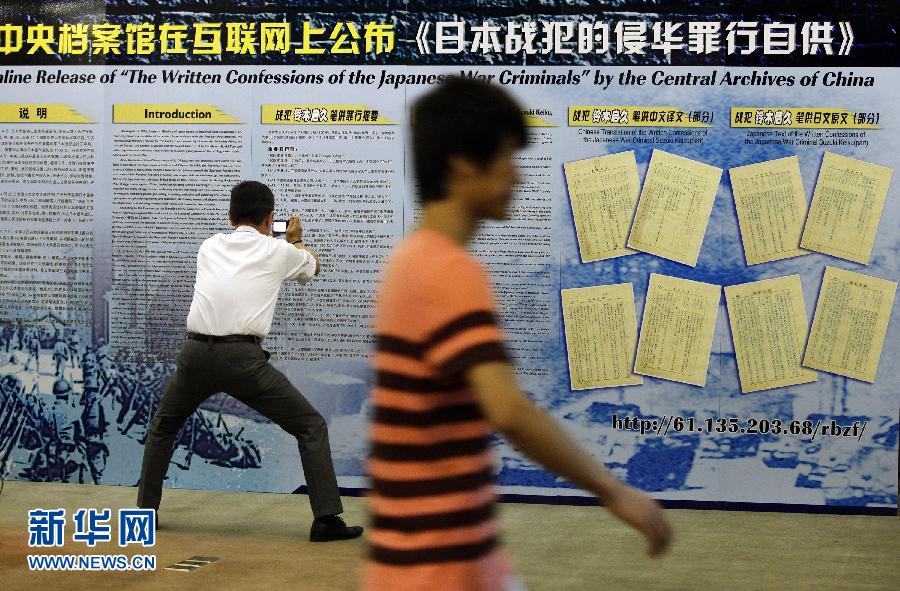
Introduction
On August 14 1945, Emperor Hirohito of Japan issued an imperial edict on armistice, announcing Japan's unconditional surrender. In accordance with the Potsdam Proclamation, the International Military Tribunal for the Far East was formed by 11 countries, including China, the United States, the United Kingdom and the Soviet Union, and had trials on Hideki Tojo and other Japanese war criminals responsible for launching the Japanese War of Aggression against China and the Pacific War.
After the birth of New China, a total of 1,109 Japanese war criminals were taken over and held in custody in the two places of Fushun and Taiyuan. In 1954, the Supreme People's Procuratorate Office of the Central People's Government (later renamed the Supreme People's Procuratorate of the People's Republic of China) was responsible for the investigation and prosecution of the Japanese war criminals. It had trials on their crimes committed during the Japanese War of Aggression against China, including violating China's sovereignty, planning and implementing the policy of aggression, conducting spy and espionage activities, manufacturing bacteria weapons, releasing poison gas, killing, arresting, enslaving and poisoning the Chinese people, raping women, plundering money and materials, destroying towns and villages, expelling peaceful inhabitants, and violating international norms and humanitarian principles.
According to the Decision on the Handling of the Criminals in Custody from the Japanese War of Aggression against China adopted by the Standing Committee of the National People's Congress (NPC) on 25 April 1956, the Supreme People's Procuratorate of the People's Republic of China announced the decision to exempt from prosecution and immediately release, in three batches in 1956, a total of 1,017 Japanese war criminals in custody, who had relatively minor offenses and good behaviors of repentance. Meanwhile, a public prosecution was initiated to the Special Military Tribunal of the Supreme People's Court of the People's Republic of China on 45 Japanese war criminals, who were of higher positions and heavier offenses (the other 47 war criminals died in custody).
From June to July 1956, the Special Military Tribunal of the Supreme People's Court of the People's Republic of China publicly tried in Shenyang and Taiyuan the 45 war criminals including Suzuki Keiku, and, based on the defendants' criminal facts, circumstances of the crimes, repentance, etc., treated them with leniency in accordance with the decision of the NPC Standing Committee, sentencing them to from twenty years to eight years in prison respectively.
Archives related to the trials of the war criminals of the Japanese War of Aggression against China, such as documents issued by the NPC Standing Committee, the Supreme People's Procuratorate and the Special Military Tribunal of the Supreme People's Court, are stored in the Central Archives. The confessions written by all the war criminals and the detailed trial records contained in the archive files are irrefutable evidence of the heinous crimes committed by the Japanese militarist aggressors against the Chinese people.
Since the Abe cabinet came into power in Japan, it has openly confused right and wrong to mislead the public, in an attempt to whitewash the history of external aggression and colonialism. This is a total disregard of the historical justice and human conscience, as well as a challenge to the outcome of World War II and the post-war international order. On the occasion of the 77th anniversary of the Marco Polo Bridge Incident, we at the Central Archives have selected from the archive files the written confessions of the 45 Japanese war criminals tried by the Supreme People's Court, including the original texts of the written confessions, supplements, corrections, postscripts, etc. as well as the then Chinese translations with abstracts, to release to the general public, in order to expose the anti-humanitarianism, anti-humanity, and anti-civilization atrocities during the Japanese invasion of China.
The past, if not forgotten, can serve as a guide for the future. Only by truly remembering the history and learning from the history, can we avoid a repeat of the tragedy of war and achieve real and lasting peace and stability in the world.

No comments:
Post a Comment